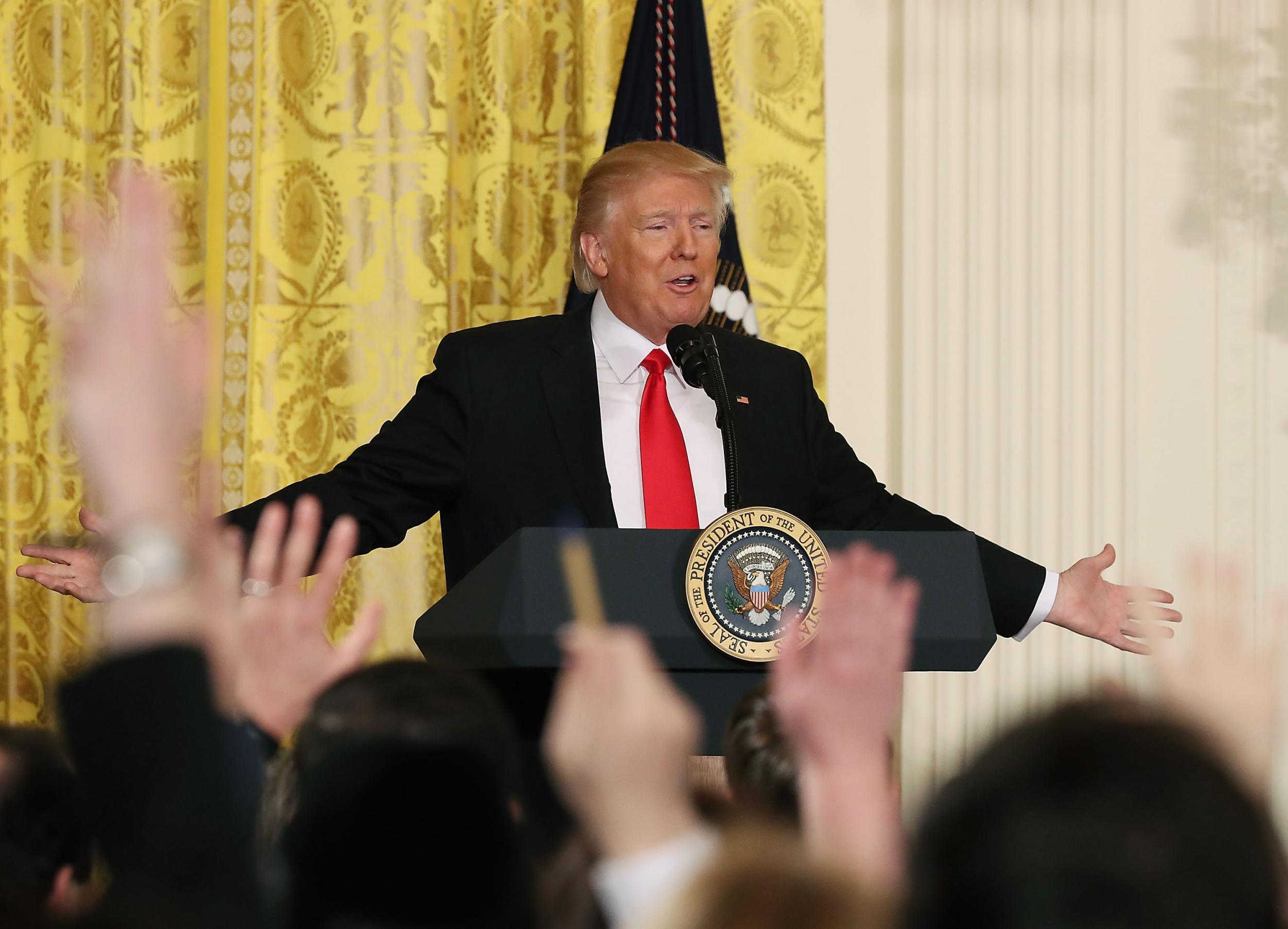Donald Trump set to offer massive tax cuts for US businesses
Corporations and small enterprises both set to benefit from one of the biggest rate reductions in country's history, according to President

President Donald Trump plans to propose massive tax cuts for businesses big and small as part of an overhaul that he says will provide the biggest tax cuts in US history.
In addition to big tax cuts for corporations, Trump also wants to cut taxes for small business owners from a top tax rate of 39.6 percent to a top rate of 15 percent, said an official with knowledge of the plan.
The top tax rate for individuals would be cut from 39.6 percent to the “mid-30s,” the official said.
The official, who spoke on condition of anonymity, was not authorised to discuss the plan publicly ahead of Trump's announcement, scheduled for Wednesday.
White House officials had already revealed that Trump's plan would reduce the top corporate income tax rate from 35 percent to 15 percent. The plan will also include child-care benefits, a cause promoted by Trump's daughter Ivanka.
Republicans who slammed the growing national debt under Democrat Barack Obama said Tuesday they are open to Trump's tax plan, even though it could add trillions of dollars to the deficit over the next decade.
Echoing the White House, Republicans on Capitol Hill argued that tax cuts would spur economic growth, reducing or even eliminating any drop in tax revenue.
“I'm not convinced that cutting taxes is necessarily going to blow a hole in the deficit,” said Sen. Orrin Hatch, R-Utah, chairman of the Finance Committee.
“I actually believe it could stimulate the economy and get the economy moving,” Hatch added. “Now, whether 15 percent is the right figure or not, that's a matter to be determined.”
The argument that tax cuts pay for themselves has been debunked by economists from across the political spectrum. On Tuesday, the official scorekeeper for Congress dealt the argument — and Trump's plan — another blow.
The nonpartisan Joint Committee on Taxation said Tuesday that a big cut in corporate taxes — even if it is temporary — would add to long-term budget deficits. This is a problem for Republicans because it means they would need Democratic support in the Senate to pass a tax overhaul that significantly cuts corporate taxes.
The assessment was requested by House Speaker Paul Ryan, R-Wis., who has been pushing a new tax on imports to fund lower overall tax rates. Senate Republicans have panned the idea, and officials in the Trump administration have sent mixed signals about it.
The import tax is not expected to be part of Trump's plan.
Trump dispatched his top lieutenants to Capitol Hill Tuesday to discuss his plan with Republican leaders. They met for about half an hour. No Democrat was invited.
Afterward, Hatch called it, “a preliminary meeting.”
“They went into some suggestions that are mere suggestions, and we'll go from there.”
Republicans have been working under a budget manoeuvre that would allow them to pass a tax bill without Democratic support in the Senate — but only if it didn't add to long-term deficits.
Senate Majority Leader Mitch McConnell, R-Ky., said the Senate was sticking to that strategy.
“Regretfully we don't expect to have any Democratic involvement in” a tax overhaul, McConnell said. “So we'll have to reach an agreement among ourselves.”
Democrats said they smell hypocrisy over the growing national debt, which stands at nearly $20 trillion. For decades, Republican lawmakers railed against saddling future generations with trillions in debt.
But with Republicans controlling Congress and the White House, there is no appetite at either end of Pennsylvania Avenue to tackle the long-term drivers of debt — Social Security and Medicare. Instead, Republicans are pushing for tax cuts and increased defense spending.
“I'm particularly struck by how some of this seems to be turning on its head Republican economic theory,” said Sen. Ron Wyden of Oregon, the top Democrat on the Senate Finance Committee.
Sen. Bob Casey, D-Pa., said, “On a lot of fronts, both the administration and Republicans have been contradictory, to say the least.”
“There's no question we should try to reduce (the corporate tax rate), but I don't see how you pay for getting it down that low,” Casey said. “Fifteen percent, that's a huge hole if you can't make the math work.”
The Trump administration on Tuesday stuck with its assertion that tax reform could push economic growth above 3 percent. Commerce Secretary Wilbur Ross said that the combination of changes on taxes, trade and regulations being pushed by the administration would accelerate the pace of economic gains.
“There is no reason that we should not be able to hit that — if not beat it,” Ross said at the White House news briefing.
Many economists are sceptical that growth could consistently eclipse 3 percent. The flow of workers into the US economy has slowed because of retirements by an ageing baby boomer population, while improvements in productivity have been sluggish.
Officials with the Federal Reserve estimate that the economy will grow at a 2.1 percent clip this year and at 1.8 percent in the longer run.
Associated Press
Join our commenting forum
Join thought-provoking conversations, follow other Independent readers and see their replies
Comments
Bookmark popover
Removed from bookmarks